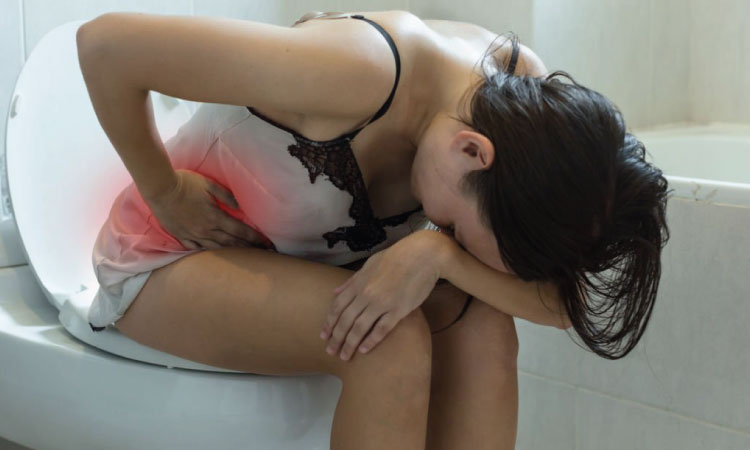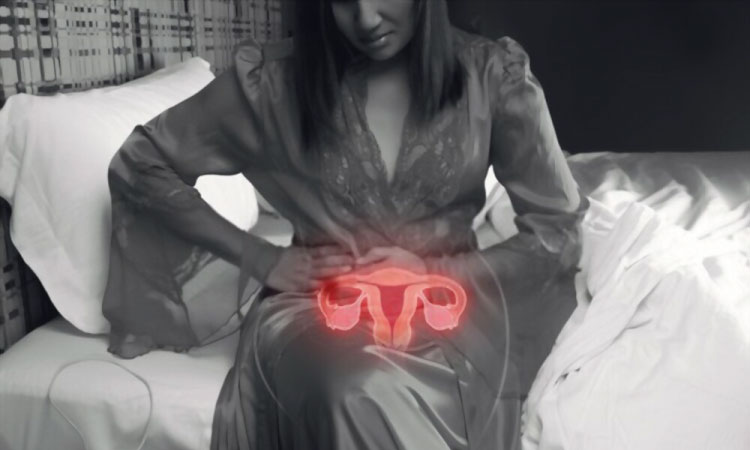Are you experiencing cramps a few days before your period is due? Are you wondering if it is ovulation cramps or implantation cramps? Well, which cramp you’re experiencing depends on when you’re experiencing it and whether you’re having a regular menstrual cycle. Read on to know how painful implantation cramps should be, how to cope with really painful implantation cramps, and more.
What Are Implantation Cramps?
Fallopian tubes are where sperm fertilizes the eggs. In order for an egg to reach the uterus, it must travel down a fallopian tube for several days. While traveling down the fallopian tube, the fertilized egg becomes a ball of cells called a blastocyst.
The blastocyst gets implanted into the uterine lining. Finally, the placenta forms, and the embryo gets attached to the uterine wall. The embryo then begins to develop into a fetus. An implantation cramp is a type of pain that can sometimes be felt when a fertilized egg attaches itself to the lining of the uterus.
There’s a higher likelihood that you’ll notice implantation cramps if you’ve been trying to conceive. Since you wish for pregnancy every month, you’ll be hyper-aware of early signs of pregnancy.
However, the majority of people who don’t expect to become pregnant are unaware that they are experiencing implantation cramps and may not notice them at first. Some women may not experience implantation cramps at all.
What Does Implantation Cramps Feel Like?

People experience implantation cramps differently, but in general, they feel somewhat like mild cramps, usually dull and aching, or mild twinges. In fact, some women confuse implantation cramps with premenstrual cramps. People have also described feelings of tingling, prickling, and pulling. There may be intermittent sensations, or they may persist for one to two days before subsiding.
Calculate Due Date With Conception Date
Implantation cramps are typically felt in the lower back, lower abdomen, and sometimes even the pelvic area. During a monthly cycle, only one of your ovaries releases an egg. The cramping, however, is caused by the implantation of the embryo in the uterus, which is why implantation cramps are more likely to occur in the middle of your body rather than just one side.
Related Reading: How To Know If Your Period Is Coming Or You Are Pregnant
How To Differentiate Implantation Cramps From Ovulation Cramps?
When people ovulate, they may experience cramping. These cramps are called ovulation cramps. Since ovulation typically occurs a couple of weeks before implantation and implantation cramps typically happen 5 to 6 days before the due period, this type of cramping is usually distinguished from implantation cramping. However, having irregular menstrual cycles may make it more difficult to distinguish them.
As with implantation cramping, ovulation cramping is primarily characterized by mild abdominal pain and spotting. Apart from timing, the main difference between ovulation cramps and menstrual cramps is that ovulation cramps tend to be more one-sided.
Painful Cramps During Pregnancy
Experiencing extremely painful implantation cramps is unusual. In no case will implantation symptoms or the pain that it causes be an emergency. In some cases, however, symptoms of implantation may overlap with symptoms of other conditions that require a doctor’s attention.
When you have cramping, but it isn’t implantation, the reason could be as simple as a digestive problem, such as trapped wind or the stomach flu, or it could be something more serious like ectopic pregnancy.
How To Cope With Painful Cramps During Pregnancy?

Verypainful implantation cramps are extremely annoying and uncomfortable. It might feel overwhelming to add cramps to your discomfort when you’re going through physical and emotional shifts during the initial stage of pregnancy. The right treatment for pregnancy cramps can assist you in feeling more comfortable and stress-free.
If you’re experiencing painful cramps during pregnancy, try these tips for relieving them quickly:
1. Take plenty of water
Dehydration during pregnancy can lead to cramps. The loss of fluids exceeds the intake of fluids when you’re dehydrated. In response, your body stores water for your most vital organs, like your heart and lungs. As a result, less vital organs—like your muscles and digestive system—are deprived of the necessary amount of water and electrolytes they require.
The lack of fluids in the body can lead to cramps in the muscles1. This includes the abdominal muscle as well. Therefore, taking plenty of water helps to combat pregnancy cramps.
2. Change positions
Whenever you experience cramps, you should change your position while standing, sitting, or lying down. Make sure that you do not put pressure on the area that is causing you pain.
3. Take a lukewarm bath
Pain and aches can be treated effectively with heat. However, pregnant women should avoid anything that can raise their core body temperature (such as a hot tub), especially during the initial stage of pregnancy. Taking a warm bath can also help ease muscle aches, just make sure the water isn’t too hot.
4. Stretch and exercise
As you practice yoga stretches, your mind will become relaxed, your blood will flow more freely, so your cramps will gradually diminish. For relieving cramps, you can also try doing some mild pregnancy exercises. This can help prevent future cramps in addition to relieving current cramps.
Related Reading: 11 Benefits Of Walking During Pregnancy
5. A gentle massage may be beneficial
Sometimes lower back pain is also associated with implantation cramps. If you have lower back pain, you might be helped by a massage that is gentle and relaxing.
6. Sleep
Sleeping is the best way to relax your mind and body. Keep yourself relaxed during early pregnancy by getting plenty of sleep. Try to sleep in a fetal position. It is suggested that you sleep in the fetal position, it relaxes the abdominal muscles and provides you with much-needed relief from the discomfort of implantation/abdominal cramps.
Early Pregnancy Cramps: When To Seek Medical Attention?

Pregnancy cramps are usually not dangerous, but if they become severe, you should seek medical attention. Painful implantation cramps with endometriosis also necessitate medical attention. You must speak with your healthcare provider about the pain. The doctor can then conduct necessary tests and eliminate the possibility of conditions such as infections, miscarriage, or an ectopic pregnancy that require immediate treatment.
If you notice any of the following symptoms along with implantation cramps, contact your health care provider right away.
- Bleeding: Consult your doctor as soon as possible if your cramps are accompanied by bleeding
- Experiencing severe cramps: If you are experiencing severe cramps that do not subside and are getting worse, go to the hospital right away
Related Reading: 7 Home Remedies For Leg Cramps During Pregnancy
If a woman thinks she might be pregnant, she should note any signs and symptoms and speak with her doctor. It is not uncommon to experience implantation cramps, which are often relieved with a warm bath.
FAQs
Anti-inflammatory medications, such as aspirin, should not be taken by anyone experiencing implantation cramps. Taking anti-inflammatory medicines around the time of conception can increase the risk of miscarriage.
The cervical mucus may change in color and consistency following implantation. Upon implantation, the cervical mucus becomes thick, gummy, and clear.

